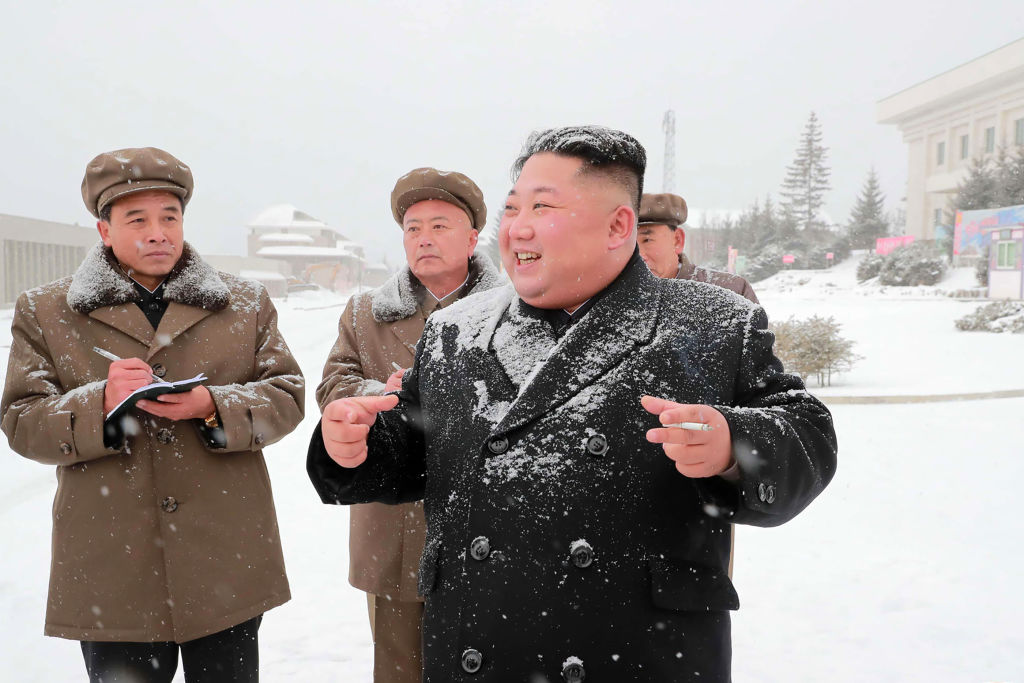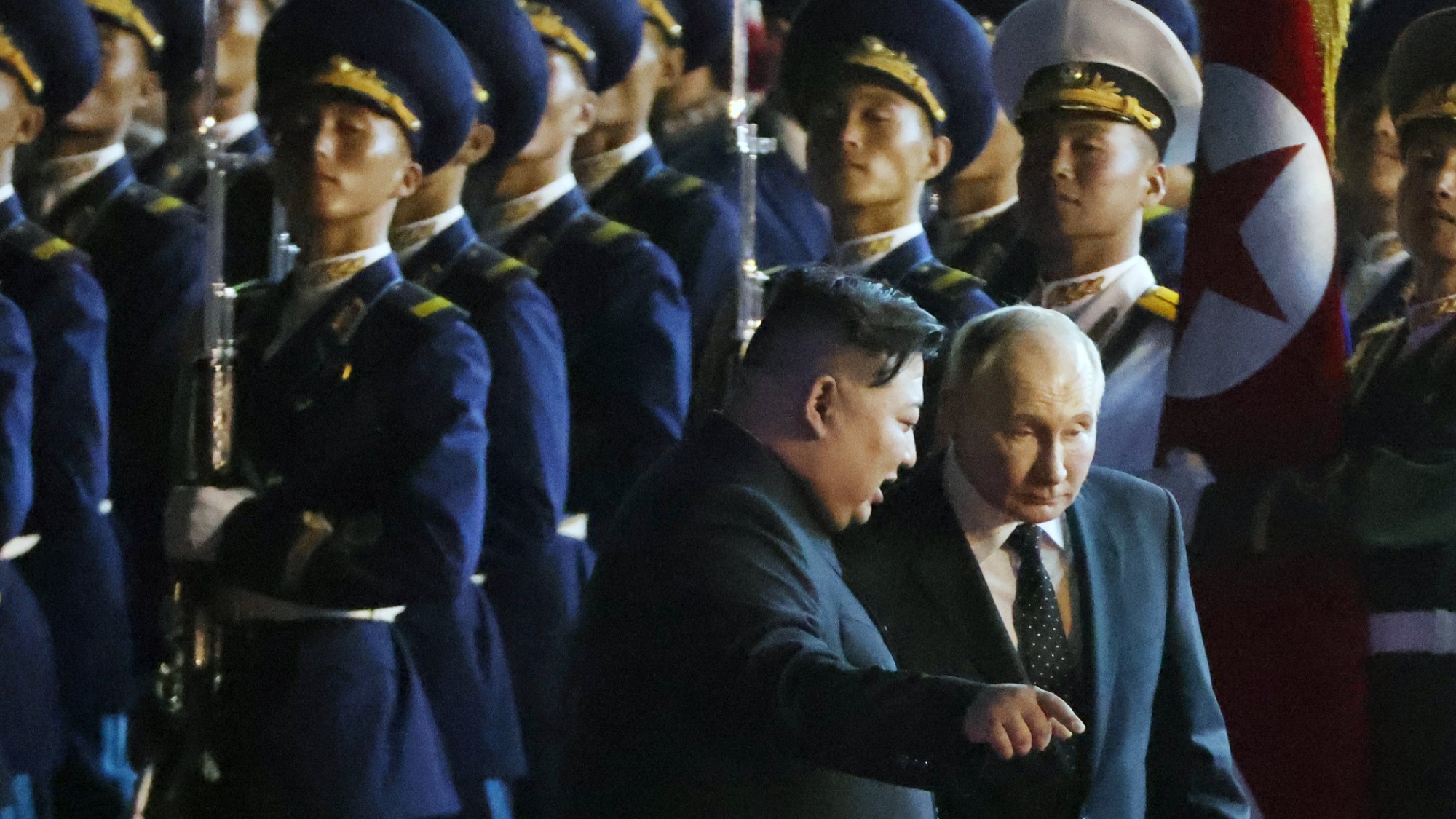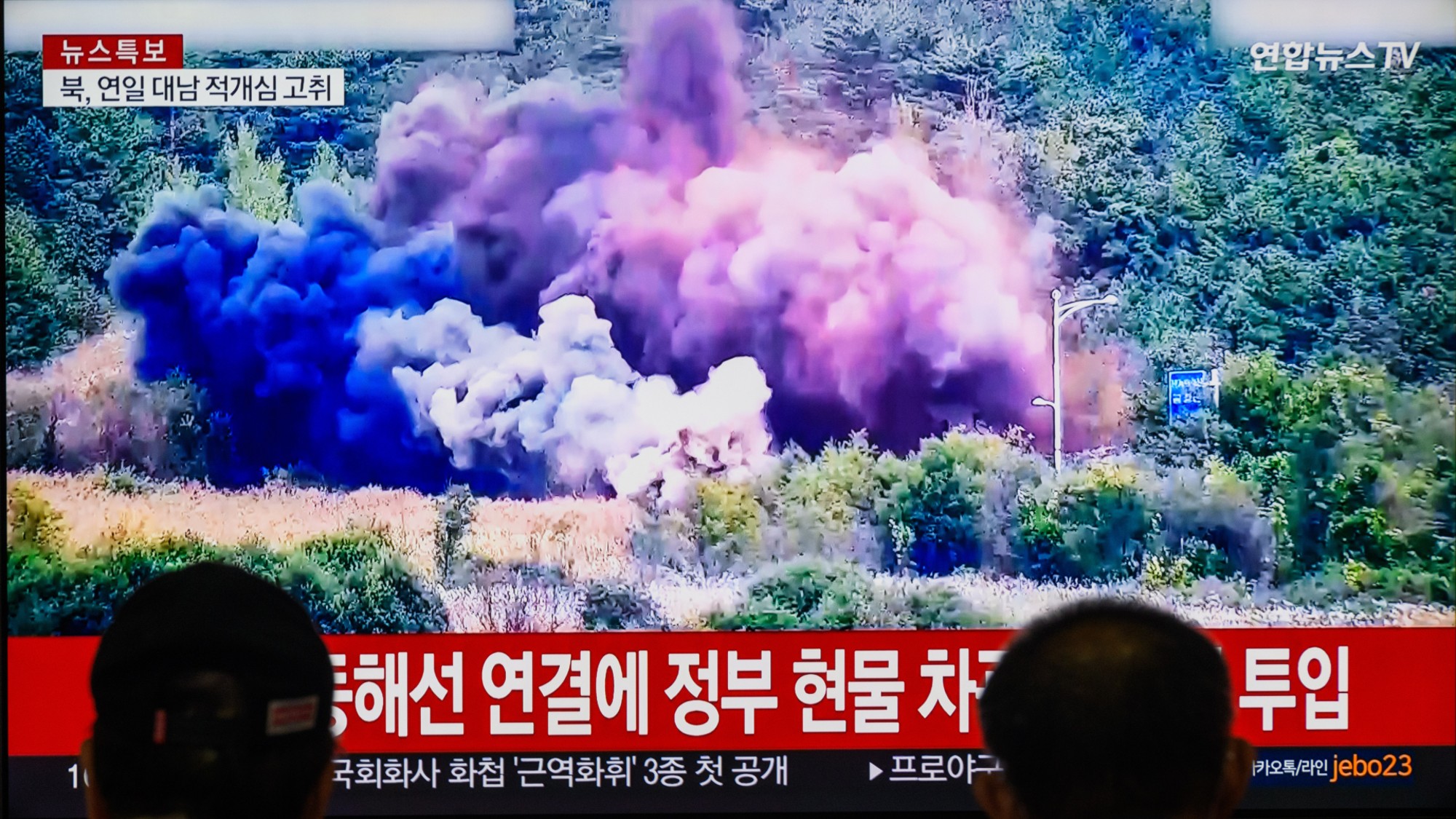North Korea demands America accept its problematic definition of 'denuclearization,' 'study geography'


A free daily email with the biggest news stories of the day – and the best features from TheWeek.com
You are now subscribed
Your newsletter sign-up was successful
On Thursday, North Korea said that it will never give up its nuclear weapons unless the U.S. agrees to Pyongyang's definition of "denuclearization," which includes the U.S. taking South Korea and probably Japan out from under its nuclear umbrella. It also appears to include removing America's 28,500 troops from South Korea. President Trump and North Korean leader Kim Jong Un agreed to work toward "complete denuclearization" at a June summit, but the disagreement over what that entails has hamstrung peace talks ever since. This new statement, issued by the state-run Korean Central News Agency, throws those talks into further turmoil.
"The United States must now recognize the accurate meaning of the denuclearization of the Korean Peninsula, and especially, must study geography," North Korea said. "When we talk about the Korean Peninsula, it includes the territory of our republic and also the entire region of (South Korea) where the United States has placed its invasive force, including nuclear weapons. When we talk about the complete denuclearization of the Korean Peninsula, it means the removal of all sources of nuclear threat, not only from the South and North but also from areas neighboring the Korean Peninsula." The U.S. removed its tactical nukes from South Korea in the 1990s.
The statement from Pyongyang is seen as a blow not just for Trump's efforts to make it appear the talks are progressing but also for South Korean President Moon Jae-in, who has said Kim is willing to negotiate away his nuclear arsenal. "The blunt statement could be an indicator that the North has no intentions to return to the negotiation table anytime soon," Shin Beomchul at Seoul's Asan Institute for Policy Studies tells The Associated Press. "It's clear that the North intends to keep its nukes and turn the diplomatic process into a bilateral arms reduction negotiation with the United States, rather than a process where it unilaterally surrenders its program."
The Week
Escape your echo chamber. Get the facts behind the news, plus analysis from multiple perspectives.

Sign up for The Week's Free Newsletters
From our morning news briefing to a weekly Good News Newsletter, get the best of The Week delivered directly to your inbox.
From our morning news briefing to a weekly Good News Newsletter, get the best of The Week delivered directly to your inbox.
A free daily email with the biggest news stories of the day – and the best features from TheWeek.com
Peter has worked as a news and culture writer and editor at The Week since the site's launch in 2008. He covers politics, world affairs, religion and cultural currents. His journalism career began as a copy editor at a financial newswire and has included editorial positions at The New York Times Magazine, Facts on File, and Oregon State University.
-
 The ‘ravenous’ demand for Cornish minerals
The ‘ravenous’ demand for Cornish mineralsUnder the Radar Growing need for critical minerals to power tech has intensified ‘appetite’ for lithium, which could be a ‘huge boon’ for local economy
-
 Why are election experts taking Trump’s midterm threats seriously?
Why are election experts taking Trump’s midterm threats seriously?IN THE SPOTLIGHT As the president muses about polling place deployments and a centralized electoral system aimed at one-party control, lawmakers are taking this administration at its word
-
 ‘Restaurateurs have become millionaires’
‘Restaurateurs have become millionaires’Instant Opinion Opinion, comment and editorials of the day
-
 Did Trump just end the US-Europe alliance?
Did Trump just end the US-Europe alliance?Today's Big Question New US national security policy drops ‘grenade’ on Europe and should serve as ‘the mother of all wake-up calls’
-
 The North Korean troops readying for deployment in Ukraine
The North Korean troops readying for deployment in UkraineThe Explainer Third country wading into conflict would be 'the first step to a world war' Volodymyr Zelenskyy has warned
-
 What's happening at the North Korea border?
What's happening at the North Korea border?The Explainer Tensions rise as hermit kingdom blows up 'symbolic' roads after accusing Seoul of flying drones over Pyongyang
-
 How would we know if World War Three had started?
How would we know if World War Three had started?In depth Most of us probably won’t realise that we are in a global conflict – at first
-
 British warship repels 'largest Houthi attack to date' in the Red Sea
British warship repels 'largest Houthi attack to date' in the Red SeaSpeed read Western allies warn of military response to Iranian-backed Yemeni rebels if attacks on ships continue
-
 Houthi rebels claim Red Sea ship attacks
Houthi rebels claim Red Sea ship attacksspeed read Iran-backed Yemeni group vows to escalate aggression towards Israel-linked vessels in revenge for Gaza war
-
 Israel plans next phase of Gaza war as first hostages released
Israel plans next phase of Gaza war as first hostages releasedSpeed read After four-day ceasefire 'we will not stop' until destruction of Hamas, says Israel
-
 Mob storms Russian airport 'looking for Jews'
Mob storms Russian airport 'looking for Jews'Speed Read Plane from Israel surrounded by rioters chanting antisemitic slogans after landing in Russia's Dagestan region
